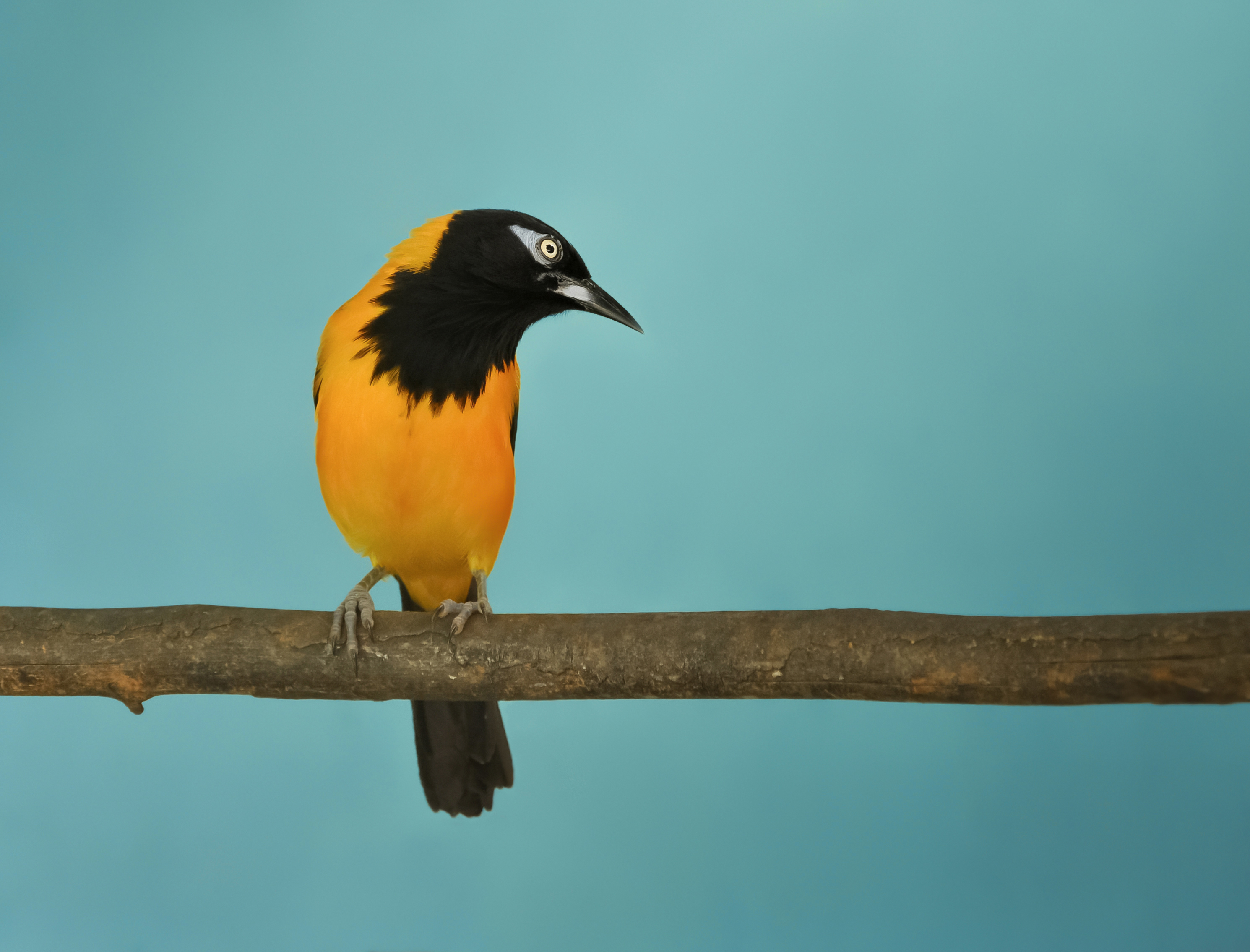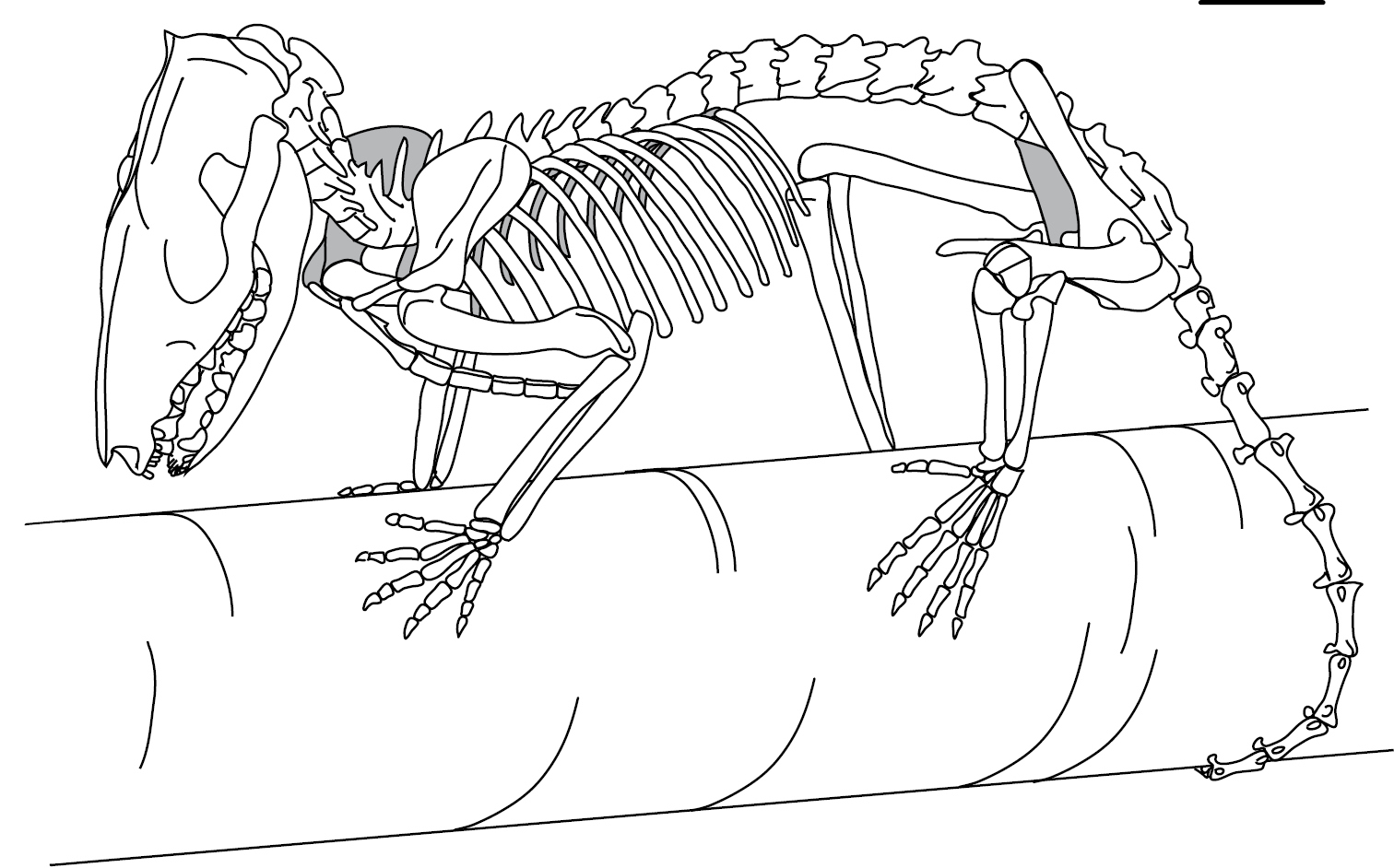|
Tyler's Mouse Opossum
Tyler's mouse opossum (''Marmosa tyleriana'') is a South American marsupial of the family Didelphidae. It lives in rainforests of the Guiana Highlands of southern Venezuela at elevations between 1300 and 2200 m. The species has only been found on three isolated tepui A tepui , or tepuy (), is a table-top mountain or mesa found in South America, especially in Venezuela and western Guyana. The word tepui means "house of the gods" in the native tongue of the Pemon, the indigenous people who inhabit the Gran S ...s ( Auyantepui, Marahuaca and Sarisariñama). All three of these locations are in protected areas ( Canaima, Duida-Marahuaca and Jaua-Sarisariñama national parks). The Latin species name refers to the habitat in which the opossum was first found, a '' Tyleria'' forest. In turn, both the genus ''Tyleria'' and the opossum's common name refer to Sidney F. Tyler, an American historian and photographer who helped finance the 1928-29 expedition of the American Museum ... [...More Info...] [...Related Items...] OR: [Wikipedia] [Google] [Baidu] |
George Henry Hamilton Tate
George Henry Hamilton Tate (April 30, 1894 – December 24, 1953) was a British-born American zoologist and botanist, who worked as a mammalogist for the American Museum of Natural History in New York City. In his lifetime he wrote several books on subjects such as the South American mouse opossums and the mammals of the Pacific and East Asia. Biography He was born in London on April 30, 1894. He had a brother, Geoffrey Tate. In 1912 he migrated from Britain to New York City with his family. From 1912 to 1914 he worked as telegraph operator on Long Island. He then joined the British Army to fight in World War I. At the end of the war, he studied at the Imperial College of Science and Technology in London, England without taking a degree. He then migrated back to the United States and became a field assistant in mammalogy at the American Museum of Natural History. In 1927 he completed his B.S. at Columbia University in Manhattan, and became a United States citizen. In Septemb ... [...More Info...] [...Related Items...] OR: [Wikipedia] [Google] [Baidu] |
Jaua-Sarisariñama National Park
Jaua-Sarisariñama National Park (Spanish: ''Parque nacional Jaua-Sarisariñama'') was located in the Guayana Highlands, within Bolívar State of southeastern Venezuela.BirdLife International (2015Important Bird and Biodiversity Area factsheet: Parque Nacional Jaua-SarisariñamaDownloaded on 11/11/2015 It was established in 1978. It has been subsumed within Caura National Park, which was established in 2017. The landscape of the park is notable for three sandstone tepuis, Jaua, Sarisariñama and Guanacoco. The top of Sarisariñama is forested and has sinkholes. Ecology The park is an Important Bird Area. Resident bird species include Tepui parrotlet (''Nannopsittaca panychlora''). Amphibians of interest include three species of ''stefania'' (carrying frogs) which appear to be endemic to the park: * ''Stefania oculosa'' (Spanish: ''Rana Stefania De Ojos Grandes'') * ''Stefania percristata'' * ''Stefania riae ''Stefania riae'' (common name: Sarisarinama carrying frog, es ... [...More Info...] [...Related Items...] OR: [Wikipedia] [Google] [Baidu] |
Endemic Fauna Of Venezuela
Endemism is the state of a species being found in a single defined geographic location, such as an island, state, nation, country or other defined zone; organisms that are indigenous to a place are not endemic to it if they are also found elsewhere. For example, the Cape sugarbird is found exclusively in southwestern South Africa and is therefore said to be ''endemic'' to that particular part of the world. An endemic species can be also be referred to as an ''endemism'' or in scientific literature as an ''endemite''. For example '' Cytisus aeolicus'' is an endemite of the Italian flora. '' Adzharia renschi'' was once believed to be an endemite of the Caucasus, but it was later discovered to be a non-indigenous species from South America belonging to a different genus. The extreme opposite of an endemic species is one with a cosmopolitan distribution, having a global or widespread range. A rare alternative term for a species that is endemic is "precinctive", which applies to s ... [...More Info...] [...Related Items...] OR: [Wikipedia] [Google] [Baidu] |
Mammals Of Venezuela
The fauna of Venezuela consists of a huge variety of animals. Venezuela's diverse wildlife includes manatees, Amazon river dolphins, and Orinoco crocodiles, which have been reported to reach up to in length. Some 23% of reptilian and 50% of amphibian species that inhabit the country are endemic to Venezuela. Overall, around 8,000 species (the world's 5th highest total) are endemic to the country. Venezuela hosts a total of 1,417 bird species, more than 351 mammals, 341 reptiles, 315 amphibians and more than 2,000 freshwater and marine fishes. Invertebrates groups have not been inventoried exhaustively, but among the well known groups there are around 900 species of marine molluscs, 1,600 butterflies, over 120 dung beetles species and 39 species of blowflies.Capelo, Juan C., Buitrago, Joaquín. 1998: Distribución geográfica de los moluscos marinos en el oriente de Venezuela. Memoria de la Sociedad de Ciencias Naturales La Salle, LXIII(150):109-160 Birds There are 1,416 bird s ... [...More Info...] [...Related Items...] OR: [Wikipedia] [Google] [Baidu] |
Opossums
Opossums () are members of the marsupial order Didelphimorphia () endemic to the Americas. The largest order of marsupials in the Western Hemisphere, it comprises 93 species in 18 genera. Opossums originated in South America and entered North America in the Great American Interchange following the connection of North and South America. The Virginia opossum is the only species found in the United States and Canada. It is often simply referred to as an opossum, and in North America it is commonly referred to as a possum (; sometimes rendered as ''possum'' in written form to indicate the dropped "o"). Possums should not be confused with the Australasian arboreal marsupials of suborder Phalangeriformes that are also called possums because of their resemblance to the Didelphimorphia. The opossum is typically a nonaggressive animal. Etymology The word ''opossum'' is borrowed from the Powhatan language and was first recorded between 1607 and 1611 by John Smith (as ''opassom'') an ... [...More Info...] [...Related Items...] OR: [Wikipedia] [Google] [Baidu] |
Baltimore
Baltimore ( , locally: or ) is the most populous city in the U.S. state of Maryland, fourth most populous city in the Mid-Atlantic, and the 30th most populous city in the United States with a population of 585,708 in 2020. Baltimore was designated an independent city by the Constitution of Maryland in 1851, and today is the most populous independent city in the United States. As of 2021, the population of the Baltimore metropolitan area was estimated to be 2,838,327, making it the 20th largest metropolitan area in the country. Baltimore is located about north northeast of Washington, D.C., making it a principal city in the Washington–Baltimore combined statistical area (CSA), the third-largest CSA in the nation, with a 2021 estimated population of 9,946,526. Prior to European colonization, the Baltimore region was used as hunting grounds by the Susquehannock Native Americans, who were primarily settled further northwest than where the city was later built. Colonist ... [...More Info...] [...Related Items...] OR: [Wikipedia] [Google] [Baidu] |
The Johns Hopkins University Press
The Johns Hopkins University Press (also referred to as JHU Press or JHUP) is the publishing division of Johns Hopkins University. It was founded in 1878 and is the oldest continuously running university press in the United States. The press publishes books and journals, and operates other divisions including fulfillment and electronic databases. Its headquarters are in Charles Village, Baltimore. In 2017, after the retirement of Kathleen Keane who is credited with modernizing JHU Press for the digital age, the university appointed new director Barbara Pope. Overview Daniel Coit Gilman, the first president of the Johns Hopkins University, inaugurated the press in 1878. The press began as the university's Publication Agency, publishing the ''American Journal of Mathematics'' in its first year and the ''American Chemical Journal'' in its second. It published its first book, ''Sidney Lanier: A Memorial Tribute'', in 1881 to honor the poet who was one of the university's first writers ... [...More Info...] [...Related Items...] OR: [Wikipedia] [Google] [Baidu] |
Orinoco
The Orinoco () is one of the longest rivers in South America at . Its drainage basin, sometimes known as the Orinoquia, covers , with 76.3 percent of it in Venezuela and the remainder in Colombia. It is the fourth largest river in the world by discharge volume of water. The Orinoco River and its tributaries are the major transportation system for eastern and interior Venezuela and the Llanos of Colombia. The environment and wildlife in the Orinoco's basin are extremely diverse. Etymology The river's name is derived from the Warao term for "a place to paddle", itself derived from the terms ''güiri'' (paddle) and ''noko'' (place) i.e. a navigable place. History The mouth of the Orinoco River at the Atlantic Ocean was documented by Christopher Columbus on 1 August 1498, during his third voyage. Its source at the Cerro Delgado–Chalbaud, in the Parima range, was not explored until 453 years later, in 1951. The source, near the Venezuelan–Brazilian border, at ab ... [...More Info...] [...Related Items...] OR: [Wikipedia] [Google] [Baidu] |
American Museum Of Natural History
The American Museum of Natural History (abbreviated as AMNH) is a natural history museum on the Upper West Side of Manhattan in New York City. In Theodore Roosevelt Park, across the street from Central Park, the museum complex comprises 26 interconnected buildings housing 45 permanent exhibition halls, in addition to a planetarium and a library. The museum collections contain over 34 million specimens of plants, animals, fossils, minerals, rocks, meteorites, human remains, and human cultural artifacts, as well as specialized collections for frozen tissue and genomic and astrophysical data, of which only a small fraction can be displayed at any given time. The museum occupies more than . AMNH has a full-time scientific staff of 225, sponsors over 120 special field expeditions each year, and averages about five million visits annually. The AMNH is a private 501(c)(3) organization. Its mission statement is: "To discover, interpret, and disseminate—through scientific research and ... [...More Info...] [...Related Items...] OR: [Wikipedia] [Google] [Baidu] |
Ochnaceae
Ochnaceae is a family of flowering plants in the order Malpighiales.Vernon H. Heywood, Richard K. Brummitt, Ole Seberg, and Alastair Culham. ''Flowering Plant Families of the World''. Firefly Books: Ontario, Canada. (2007). . In the APG III system of classification of flowering plants, Ochnaceae is defined broadly, to include about 550 species,Maria do Carmo E. Amaral, and Volker Bittrich. 2014. "Ochnaceae". pages 253-268. In: Klaus Kubitzki (editor). 2014. ''The Families and Genera of Vascular Plants'' volume XI. Springer-Verlag: Berlin, Heidelberg, Germany. (print). (eBook). and encompasses what some taxonomists have treated as the separate families Medusagynaceae and Quiinaceae. In a phylogenetic study that was Academic publishing, published in 2014, Ochnaceae was recognized in the broad Sensu, sense,Julio V. Schneider, Pulcherie Bissiengou, Maria do Carmo E. Amaral, Ali Tahir, Michael F. Fay, Marco Thines, Marc S.M. Sosef, Georg Zizka, and Lars W. Chatrou. 2014. "Phyloge ... [...More Info...] [...Related Items...] OR: [Wikipedia] [Google] [Baidu] |
South America
South America is a continent entirely in the Western Hemisphere and mostly in the Southern Hemisphere, with a relatively small portion in the Northern Hemisphere at the northern tip of the continent. It can also be described as the southern subregion of a single continent called America. South America is bordered on the west by the Pacific Ocean and on the north and east by the Atlantic Ocean; North America and the Caribbean Sea lie to the northwest. The continent generally includes twelve sovereign states: Argentina, Bolivia, Brazil, Chile, Colombia, Ecuador, Guyana, Paraguay, Peru, Suriname, Uruguay, and Venezuela; two dependent territories: the Falkland Islands and South Georgia and the South Sandwich Islands; and one internal territory: French Guiana. In addition, the ABC islands of the Kingdom of the Netherlands, Ascension Island (dependency of Saint Helena, Ascension and Tristan da Cunha, a British Overseas Territory), Bouvet Island ( dependency of Norway), Pa ... [...More Info...] [...Related Items...] OR: [Wikipedia] [Google] [Baidu] |
.jpg)




